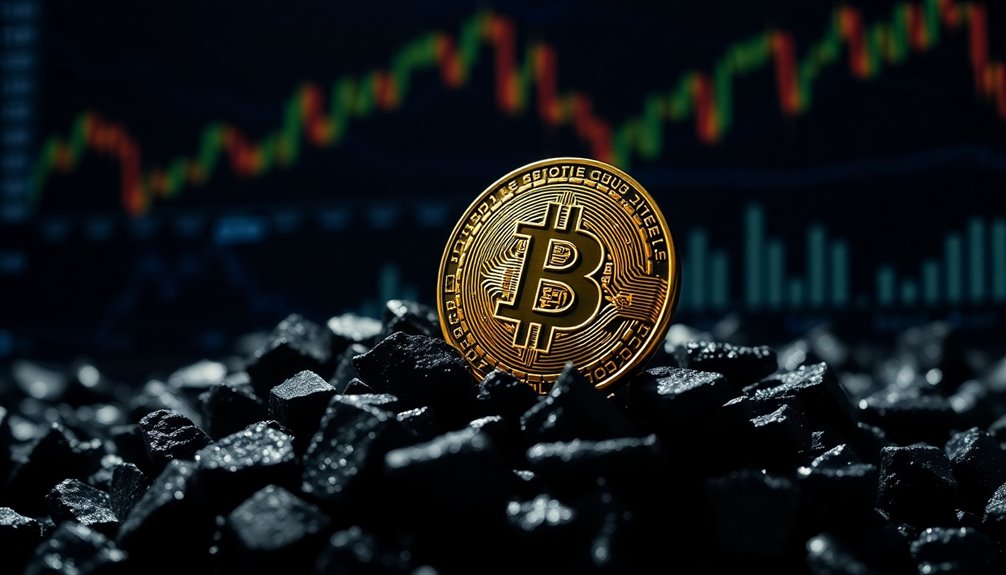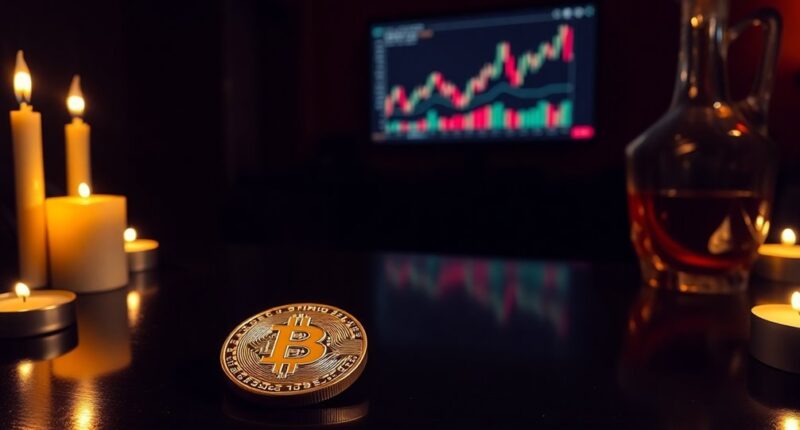You might be wondering if Bitcoin is truly dead, given the ups and downs of the market. However, it's important to consider how Bitcoin is evolving as a strategic asset in today's economic landscape. With increasing institutional interest and a clearer regulatory environment, Bitcoin's role as a reserve could reshape how we think about value and stability. What does this mean for its future? Let's explore the potential that lies ahead.

Is Bitcoin really dead, or is it just evolving? The current market trends suggest it's far from extinction. With a bullish sentiment and a Fear & Greed Index score of 72, Bitcoin's price is on an upward trajectory. Predictions hint that it could reach $200,000 by 2025, showcasing substantial growth potential.
Sure, its price has been volatile—averaging around 4.30% over the past month—but that volatility often comes with opportunities for savvy investors like you. Emerging cryptocurrencies are also creating competitive pressures that Bitcoin must navigate.
Institutional adoption is a game-changer, with major companies diving headfirst into the Bitcoin market. This influx not only boosts Bitcoin's credibility but also stabilizes its market presence. Regulatory shifts, such as Trump's recent executive order, are fueling mainstream acceptance, making Bitcoin more accessible and attractive. Wall Street firms are anticipated to enter the crypto market aggressively, further solidifying Bitcoin's position.
You might find it reassuring that the landscape is shifting toward a more structured environment, which can only benefit long-term investors.
One concept gaining traction is the Strategic Bitcoin Reserve (SBR). Imagine how this could serve as a hedge against monetary instability. The SBR could diversify U.S. financial reserves, potentially contributing to economic stability.
Yes, Bitcoin's volatility is a concern, but its long-term returns have proven impressive, indicating significant growth potential. Establishing a reserve for a purely digital asset like Bitcoin would mark a historic shift, but it would require careful management and coordination with financial services to ensure security.
Technological advancements and increasing adoption further bolster Bitcoin's investment appeal. Its finite supply and decentralized nature make it an attractive store of value. As more businesses and governments adopt Bitcoin for transactions, its value only increases.
The network effect is real: the more users that join, the more valuable Bitcoin becomes. Plus, its independence from external economic factors adds to its allure, making it a unique asset in your investment portfolio.
That said, regulatory and market challenges remain. While clarity is improving, potential market excesses and leverage could trigger pullbacks. Bitcoin's price has experienced significant fluctuations in the past, and managing its volatility will be crucial for the success of any strategic reserve.









